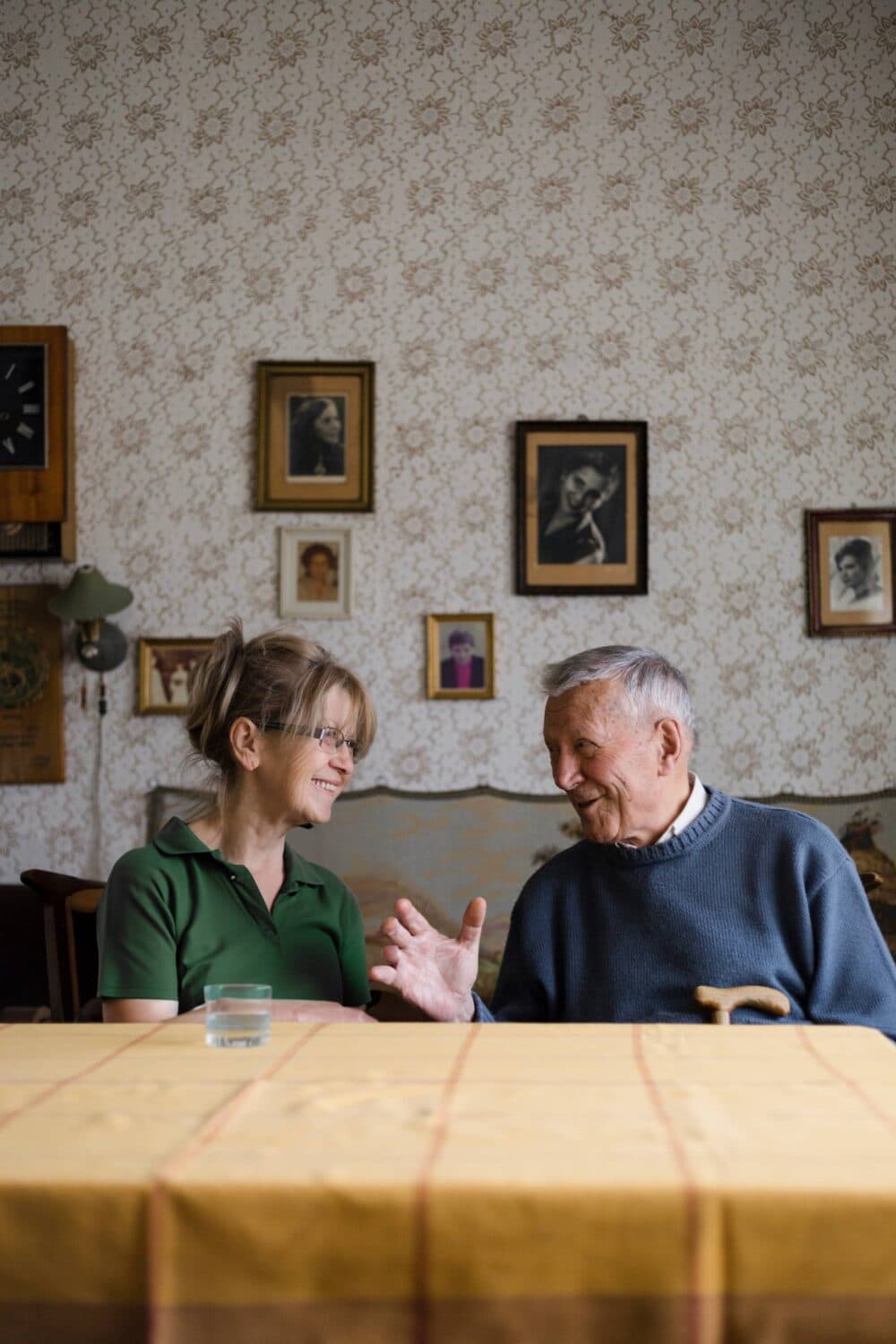How much does a live-in carer charge?

Have you ever wondered how much live-in care really costs? For many families, choosing between a care home and live-in support is a significant decision—one that involves not just personal preferences but financial considerations too. Understanding the costs and funding options available can help you make an informed choice that ensures comfort, dignity, and the right level of care for yourself or a loved one.

The Cost of Live-In Care in South Lanarkshire
Live-in care allows individuals to remain in the comfort of their own home while receiving round-the-clock support. The cost of this type of care varies depending on the level of assistance required. In South Lanarkshire, you can expect to pay:
- From £900 per week for standard personal care.
- Up to £2,000 per week for complex needs, such as advanced dementia or medical support.
These figures may seem high, but when compared to residential care home fees—especially for those requiring specialist care—live-in care can be a more personal and cost-effective solution.

Live-In Care vs. Care Home Costs: Which Is More Affordable?
Many people assume that care homes are the cheaper option. However, the cost comparison depends on the individual’s needs. Here’s a breakdown of average costs:
- Residential care homes: Around £700 per week for assistance with daily tasks and meals.
- Nursing homes: Starting from £850 per week, with higher costs for medical support.
- Specialist dementia care: Often exceeding £1,200 per week.
For couples requiring care, live-in support can be a particularly cost-effective alternative, as the cost covers both individuals rather than paying for two separate care home placements.

Factors That Influence the Cost of Live-In Care
Several factors impact the total cost of live-in care, including:
- Level of care required – More intensive medical or personal care needs result in higher costs.
- Geographical location – Care costs vary across the UK, with South Lanarkshire offering competitive rates.
- Care provider experience and reputation – Trusted providers may charge higher fees but offer better service quality.
- Additional support services – Services such as night-time assistance or specialised dementia care increase overall costs.
- Carer qualifications and experience – Highly skilled carers with medical training command higher fees.

Funding Care: Who Pays for What?
Self-Funding Care
If your savings exceed £23,250, or you own a property and are moving into a care home, you will generally need to fund your own care. However, there are ways to manage these costs:
- Paying privately: Arranging care directly with a provider.
- Requesting local council assistance: The council can arrange care on your behalf, though they may charge an administrative fee.
- Equity release: Accessing funds from your home without selling it.
- Renting out your property: Generating income to offset care costs.
- Deferred payment schemes: The local council covers costs upfront, to be repaid later.
Local Authority Support
If your savings fall below £23,250, you may be eligible for financial support from the council. To determine this, you will need a free needs assessment, which evaluates the level of care required. If you qualify, the council may contribute towards the cost of your care, depending on your income and assets.
NHS Funding Options
Some individuals may be entitled to NHS Continuing Healthcare (CHC), which fully covers care costs for those with severe health needs. Other funding options include:
- NHS-funded nursing care: For those in a nursing home setting.
- Attendance Allowance: A benefit for those over state pension age needing personal support.
- Personal Independence Payment (PIP): For individuals under pension age requiring assistance with daily tasks.

The Hidden Benefits of Live-In Care
While cost is a crucial factor, it’s also important to consider the quality of life that live-in care provides. Many families choose this option because it allows their loved ones to:
- Remain in familiar surroundings.
- Receive one-on-one personalised support.
- Maintain social connections and independence.
- Avoid the upheaval of moving into a care facility.
Dorothy, a live-in care recipient in South Lanarkshire, shared her experience: “There really is no place like home. With my carer Magda’s support, I can visit friends, attend church, and continue my hobbies. It feels like a true friendship.”

Planning for the Future: What Happens If Savings Run Out?
One common concern is running out of funds. If your savings fall below £23,250, you should contact the local council at least three months in advance to discuss funding options. Some individuals also explore:
- Deferred payment schemes, where the council covers costs upfront, to be repaid later.
- Equity release, which allows homeowners to access cash tied up in their property.
- Reablement services, which offer short-term care following illness or hospital discharge, often free of charge.

Making the Most of Your Care Budget
- Compare providers – Costs vary, so researching multiple options can help you find the best service within your budget.
- Consider part-time live-in care – If full-time care is unaffordable, part-time live-in care may provide a balance of support and financial sustainability.
- Look for funding opportunities – Check for benefits and financial aid that may ease the financial burden.
- Plan ahead – Long-term financial planning ensures you have a strategy in place before care becomes urgent.
- Discuss options with a financial advisor – Professionals can provide insight into savings plans and investment options that support long-term care costs.

How to Get the Right Financial Advice
Choosing the best care option involves thoughtful financial planning. Expert guidance can help ensure you or your loved one receives the right support without unnecessary financial strain. Consider reaching out to:
- Age UK – Freephone 0800 055 6112
- Independent Age – Freephone 0800 319 6789
- Society of Later Life Advisers (SOLLA) – Call 0333 2020 454
- MoneyHelper – Freephone 0800 011 3797

Final Thoughts: Making the Right Choice for You
Understanding the costs of live-in care and the financial support available can make a significant difference in your planning. Whether you choose live-in care or a care home, the decision should reflect not just affordability but also quality of life, personal comfort, and emotional well-being.
At Home Instead South Lanarkshire, we understand that every care journey is unique. If you’re considering live-in care for yourself or a loved one, our team is here to offer compassionate guidance and tailored support.
For more information on how Home Instead South Lanarkshire can help, get in touch today.

Areas We Serve
East Kilbride, Hamilton, Rutherglen, Cambuslang, Larkhall, Lanark, Strathaven, Carluke, Biggar, Blantyre, Uddingston, Bothwell, Stonehouse, Wishaw, Motherwell
G75 0, G75 9, ML10 6, ML11 0, ML11 7, ML11 8, ML11 9, ML12 6, ML3 0, ML3 6, ML3 7, ML3 8, ML3 9, ML8 4, ML8 5, ML9 1, ML9 2, ML9 3
7 St Leonard St, Lanark ML11 7AB, UK